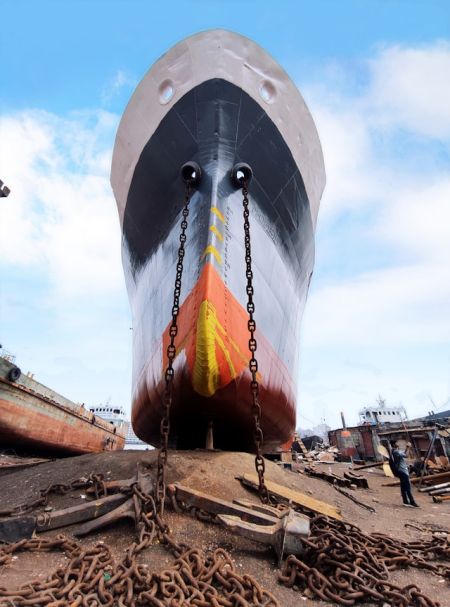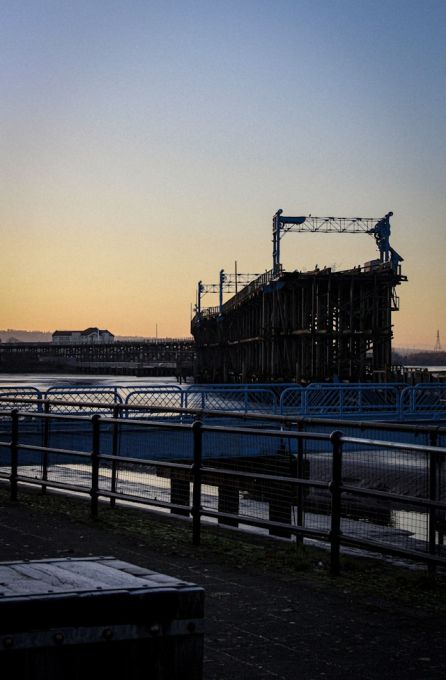To combat the COVID-19 epidemic, maritime navigation has been significantly restricted in French territorial waters.
Decree No. 2020-293 of March 23, 2020, prescribing the general measures necessary to combat the COVID-19 epidemic within the framework of the state of health emergency, prohibits so-called open-air establishments from receiving the public. Ship maintenance or repair establishments are not among the exceptions provided in the annex to the aforementioned Decree.
The order of the Maritime Prefecture of the Mediterranean No. 037/2020 of March 20, 2020, regulating the navigation of vessels and maritime activities in French internal and territorial waters of the Mediterranean to combat the 2019 CORONAVIRUS (COVID-19) epidemic, prohibits nautical and leisure activities with the exception of certain navigations, including those of vessels under repair in a shipyard as part of a delivery or sea trial.
As such, it is permissible to question the continuation of activity for shipyards and, more broadly, the ship repair industry. The continuation of activity for ship repair professionals must, in any event, comply with mandatory employee protection rules.
 The aforementioned order indicates that maritime navigation for the purpose of carrying out repairs is subject to prior authorization from the nearest French Navy semaphore. In practice, vessels bound for a shipyard must first send an email to the semaphore closest to the home port to inform them of the planned navigation.
The aforementioned order indicates that maritime navigation for the purpose of carrying out repairs is subject to prior authorization from the nearest French Navy semaphore. In practice, vessels bound for a shipyard must first send an email to the semaphore closest to the home port to inform them of the planned navigation.
In the absence of specific text, it would also be preferable to keep proof on board the vessel to demonstrate, in case of inspection, that the navigation is being carried out to reach a shipyard. The prior authorization from the Semaphores will certainly help to channel the number of pleasure boats whose navigation is authorized.
It should be recalled, however, that pursuant to Decree No. 2004-112 of February 6, 2004, relating to the organization of state action at sea, the authority of the Maritime Prefects is exercised “from the low tide mark, except in ports within their administrative limits and in estuaries below the transverse limits of the sea.”
In this context, marinas will have to implement measures to ensure the continuity of public port service, which, according to the Council of State, includes “both the safety of goods and people and the proper use of port equipment and structures”.
In marinas, among the vessels intended for pleasure activities, there are also those involved in the maintenance of structures, buoyage, and sea rescue. There are also vessels that contribute to tourist activities. Mooring berths are also dedicated to shipyards and nautical professionals.
As such, it would be conceivable to define “anti-COVID-19” zones within marinas, access to which would be strictly reserved for receiving vessels whose navigation is authorized by the Maritime Prefectures. Similarly, it will be up to the Port Master to exercise their police power to limit vessel movements within the basin to only those vessels whose navigation is authorized.
In any event, the existence of this exception, which allows for justified maritime navigation, may encourage nautical and pleasure boating professionals, particularly shipyards, to resume their activity in view of the summer season.
However, maintaining professional activity can prove perilous for the employer with regard to their safety obligation. The employer’s safety obligation is analyzed as an obligation of means based on general prevention principles to “combat risks at the source”.
In a note published on March 26, 2020, the Ministry of Labor reiterates the rules to be observed by companies that maintain activity.
It is clear that it seems difficult for services performed on board a vessel to “respect social distancing rules (minimum 1 meter) and simple and effective barrier gestures,” and to avoid “gatherings of employees in confined spaces.”
 A ship is, by nature, a cramped workplace where it will be difficult to respect the recommended gestures to combat the Covid-19 epidemic.
A ship is, by nature, a cramped workplace where it will be difficult to respect the recommended gestures to combat the Covid-19 epidemic.
In accordance with Article L. 4121-1 of the Labor Code, in this high-risk health context, the employer must take “the necessary measures to ensure the safety and protect the physical and mental health of workers.”
Ship repair work shares many similarities with construction and public works sites. The comparison is particularly justified given the multitude of stakeholders involved in a vessel under repair.
Shipyards frequently use the services of a number of subcontractors. The shipyard also hosts the crew of the yacht under repair, as well as companies directly engaged by the captain or the yacht management company.
The text applicable to coordinating stakeholders currently remains Decree No. 77-1321 of November 29, 1977, as amended, which continues to govern shipbuilding and repair.
In this context, Article 10 of Decree No.77-1321 of November 29, 1977, setting out specific hygiene and safety requirements applicable to work carried out in an establishment by an external company applicable to ship repair involving subcontracting, states: When the work defined in Article 1 is carried out at night or in an isolated location or at a time when the activity of the user company is interrupted, the head of the intervening company must take the necessary measures to ensure that no employee works in isolation at a point where they could not be rescued quickly in the event of an accident.. ”
In application of these safety rules, certain services require the presence of at least two employees. In this scenario, it will be difficult for the employer to enforce the directives of the Ministry of Labor aimed at protecting employees from contamination risks.
Faced with these new work organizations and associated risks, employers and shipowners will have to update the “assessment of occupational risks related to their activity, take it into account in the risk assessment document, and define the resulting prevention measures.”
The mandatory rules for the protection of sailors and employees will compel shipowners/employers to cease all activity, including those authorized by maritime authorities, when there is a proven risk to employees/sailors whose activity has been maintained. It is in consideration of these principles that shipowners/employers must consider the new work organization imposed by Covid-19.
